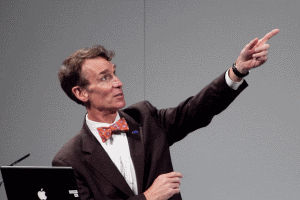In times gone by, science existed to describe the natural world, leaving the explanation of theses facts to theology or metaphysics. However, as great thinkers developed their methods of scientific inquiry over the years, they strove to explain as well as describe and predict natural phenomena. Modern scientific inquiry is the process of finding and explaining patterns in the world using an evidence-based approach.
Unsurprisingly, the modern method grew from seeds planted by the ancient Greeks, particularly Aristotle and his Classical Model. This model centers around abductive, deductive, and inductive inference as well as the use of analogies to promote understanding. From the 1920s to 1950s in Europe and North America, many philosophers and scientists (many falling into both categories) began to take ideas of scientific inquiry in a new direction out of concern for the methodology's validity and influence on society. This new model is known as logical empiricism, and it persists to today. This movement reshaped the way society thought of a wide range of issues, but mainly focused on putting greater emphasis on evidence and mathematical and logical analysis of that evidence in order to strip science of any lingering mysticism. It put forth a model for research with clear steps taking one from a sensible hypothesis through a repeatable experiment with detailed analysis of the data collected in a manner that allowed the conclusion to be as solid as possible.

Scientific inquiry process chart - EdQuest Resources
In addition, best practice guidelines were drawn up for all sorts of things. For example, see the abbreviated criteria for choosing a good theory below as outlined by Colyvan in The Indispensability of Mathematics1:
- Simplicity/Parsimony - Given two theories with the same empirical adequacy, we generally prefer that theory which is simpler both in its statement and in its ontological commitments.
- Unificatory/Explanatory Power - ...we... require that a theory not simply predict certain phenomena, but explain why such predictions are expected. Furthermore, the best theories do so with a minimum of theoretical devices.
- Boldness/Fruitfulness - We expect our best theories not to simply predict everyday phenomena, but to make bold predictions of novel entities and phenomena that lead to fruitful future research.
- Formal Elegance - ...our best theories have aesthetic appeal. ...we rule out ad hoc modifications to a failing theory.
Perhaps the most important thing, philosophically speaking, about today's form of scientific inquiry is that it is conducted with the understanding that none of it is concrete. Someone who truly understand the spirit of modern scientific inquiry understands that no theory is safe from being revised or rejected if new evidence is uncovered which refutes it. 'Bill Nye the Science Guy', an iconic figure in many childhoods, embodied this philosophy during a debate on creationism vs. evolution; when asked what could change his mind, he responded simply "[w]e would just need one piece of evidence2".

Bill Nye - Ed Schipul
References:
1. Cloyvan, Mark, (2001). 'The Role of Confirmation Theory'. In (ed), The Indispensability of Mathematics. 1st ed. New York, USA: Oxford University Press. pp.78-9.
2. Katayama, Devin (2014). Science Guy Bill Nye Debates Ken Ham. [TRANSCRIPT, ONLINE] Available at: http://www.npr.org/2014/02/05/271873763/science-guy-bill-nye-debates-creationist-ken-ham. [Last Accessed 8/3/2014].
